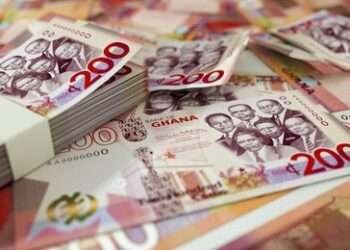Ghana’s macroeconomic revival continues to earn international praise as global credit ratings agency Moody’s Investors Service has upgraded the country’s long-term foreign currency credit rating from Caa2 to Caa1, assigning a stable outlook.
The upgrade, meanwhile signals growing optimism about the nation’s fiscal reforms, debt sustainability, and overall economic recovery under the ongoing International Monetary Fund (IMF) programme.
The decision marks a critical milestone for Ghana, which has endured several years of fiscal strain, high inflation, and currency depreciation. Moody’s cited improved prospects for debt reduction, enhanced foreign reserve buffers, and restored macroeconomic stability as key drivers behind the upgrade.
“Greater macroeconomic stability and favourable external dynamics are supporting more controlled funding costs and foreign exchange reserve replenishment,” Moody’s noted in its report.
Fiscal Reforms and Debt Reduction Drive the Upgrade
The ratings upgrade comes on the back of Ghana’s continued commitment to fiscal consolidation and successful debt restructuring efforts under the IMF-supported Extended Credit Facility (ECF) programme. The government’s proactive stance in maintaining primary budget surpluses, tightening expenditure controls, and strengthening the Fiscal Responsibility Framework has begun to yield tangible results.
By July 2025, Ghana’s public debt had fallen sharply to ₵629 billion ($51.6 billion) — equivalent to 44.9% of GDP — compared to ₵764 billion (64.9%) a year earlier. This remarkable turnaround underscores the government’s effort to restore debt sustainability while ensuring macroeconomic discipline.
Moody’s highlighted that Ghana’s debt metrics are now on a clearer path toward long-term sustainability, supported by prudent budget management and fiscal restraint. The stable outlook reflects growing confidence that the risk of further deterioration has significantly diminished.
Inflation Down, Cedi Stable, and Reserves Strengthened
One of the most notable achievements supporting Moody’s decision is Ghana’s success in reining in inflation and stabilising the cedi. After years of double-digit inflation, the rate dropped to 9.4% in September 2025, marking the country’s first single-digit inflation in four years. This moderation in price levels has helped ease the cost of living, boost consumer confidence, and foster an environment conducive to business growth.
At the same time, Ghana’s foreign exchange reserves surged 43%, reaching $10.7 billion by August 2025, thanks largely to strong gold export earnings and prudent monetary policy by the Bank of Ghana. The stronger reserve position has enhanced Ghana’s ability to meet external obligations, reduced exchange rate volatility, and bolstered overall investor confidence.
These achievements underscore the government’s ongoing efforts to ensure economic stability through a mix of fiscal discipline, debt management, and monetary policy coordination.
IMF Programme Delivering Tangible Results
Moody’s credit upgrade comes shortly after the IMF completed its fifth staff-level review of Ghana’s $3 billion Extended Credit Facility. The Fund lauded Ghana’s strong performance under the programme, particularly in stabilising inflation, rebuilding reserves, and maintaining fiscal discipline.
The staff-level agreement paves the way for a $385 million disbursement, once approved by the IMF Executive Board. The Fund’s positive assessment and Moody’s endorsement together reinforce the growing narrative that Ghana’s economy is on the road to sustained recovery.
Under the IMF programme, Ghana has pursued structural reforms aimed at improving public financial management, strengthening revenue mobilisation, and enhancing transparency in state-owned enterprises. These reforms are designed to ensure lasting fiscal stability and prevent a return to past imbalances.
Market Confidence and Investment Outlook Improve
Moody’s upgrade is expected to have a ripple effect on market sentiment and investor confidence. By moving Ghana up the credit ladder, the rating agency has effectively signalled lower perceived risk for potential investors. This could translate into reduced borrowing costs for the government and improved access to international capital markets — crucial for financing infrastructure and private sector development.
Financial analysts believe the rating upgrade could also attract renewed interest from foreign portfolio investors, who may now view Ghana as a more stable and creditworthy destination. The country’s ongoing progress in debt restructuring with private creditors further strengthens its case for re-entry into global bond markets.
While Moody’s stable outlook is a positive sign, the agency cautioned that challenges persist, particularly from global commodity price fluctuations and external financing pressures. Ghana’s heavy reliance on gold, cocoa, and oil exports makes it vulnerable to global market shifts.
Nevertheless, the government’s commitment to macroeconomic discipline, structural reforms, and economic diversification offers hope for greater resilience in the years ahead. With the cedi stabilising, inflation under control, and debt metrics improving, Ghana appears firmly on the path to restoring full credit confidence.
As the country continues to implement its IMF-backed reforms, Ghana’s prospects for sustainable growth, investor attraction, and long-term stability have never looked brighter. The upgrade to Caa1 with a stable outlook sends a clear message to global markets: Ghana is back on track.
READ ALSO: Guinness Ghana Leads Bull Run as GSE Financial Stocks Rally 65.76% YTD




















